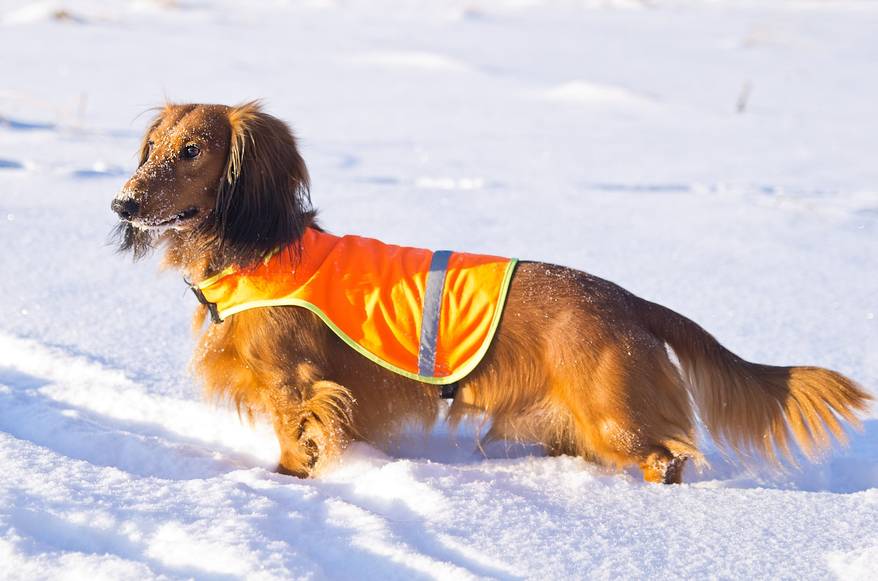
-
Find the right food for your pet
Take this quiz to see which food may be the best for your furry friend.
Find the right food for your pet
Take this quiz to see which food may be the best for your furry friend.
Featured products
 Adult Perfect Weight & Joint Support Chicken Recipe Dry Dog Food
Adult Perfect Weight & Joint Support Chicken Recipe Dry Dog FoodThis weight management and mobility support dog food was created with Hill’s unique understanding of the biology of overweight dogs.
Shop Now Adult 7+ No Corn, Wheat, Soy Chicken & Brown Rice Dog Food
Adult 7+ No Corn, Wheat, Soy Chicken & Brown Rice Dog FoodSupports energy level and beautiful coat in mature dogs
Shop Now Adult 7+ Perfect Digestion Chicken, Whole Oats & Brown Rice Recipe Dog Food
Adult 7+ Perfect Digestion Chicken, Whole Oats & Brown Rice Recipe Dog FoodScience Diet's breakthrough nutrition supports ultimate digestive well-being & healthy microbiome for dogs age 7+
Shop NowFeatured products
 Adult Savory Chicken Entrée Cat Food
Adult Savory Chicken Entrée Cat FoodPrecisely balanced nutrition with the delicious taste of savory minced chicken to help fuel the energy needs of cats during the prime of their life
Shop Now Adult Perfect Digestion Chicken, Barley & Whole Oats Recipe Cat Food
Adult Perfect Digestion Chicken, Barley & Whole Oats Recipe Cat FoodScience Diet's breakthrough nutrition supports ultimate digestive well-being & healthy microbiome
Shop Now Perfect Weight Salmon & Vegetable Canned Cat Food
Perfect Weight Salmon & Vegetable Canned Cat FoodOver 70% of cats lost weight within 10 weeks when fed this nutrition
Shop Now -
Dog
- Dog Tips & Articles
-
Health Category
- Weight
- Food & Environmental Sensitivities
- Urinary
- Digestive
- Joint
- Kidney
-
Life Stage
- Puppy Nutrition
- Adult Nutrition
- Senior Nutrition
Cat
- Cat Tips & Articles
-
Health Category
- Weight
- Skin & Food Sensitivities
- Urinary
- Digestive
- Kidney
-
Life Stage
- Kitten Nutrition
- Adult Nutrition
Featured articles
 Water
WaterDiscover why water is the most important nutrient for your dog or cat to live a healthy life. Find out how much water your pet should consume each day.
Read More Pet Food Storage Tips
Pet Food Storage TipsDiscover how and where to store your dry, as well as canned, dog and cat food. Learn how to find the "best before" dates on all Hill's pet food packaging.
Read More The Incredible Science Behind Your Pet's Microbiome
The Incredible Science Behind Your Pet's MicrobiomeLearn what a pet's microbiome is, how it contributes to your pet's gut & overall health, and why nutrition is important in maintaining healthy microbiomes.
Read More -
Find the right food for your pet
Find the right food for your pet


Dogs have been hunting by their masters' sides for centuries. The instincts to retrieve, bark up trees and point are natural in dogs like retrievers, English setters and feists. Hunting with dogs can bring both you and them great satisfaction, and you'll be taking part in a sport that stretches back generations.
No matter what game you are pursuing on the hunt, it's critical to ensure your dog's safety while in the field.
First and foremost, make sure your dog is trained for hunting. This is not an overnight process! Find a local trainer to work with or consult books like Richard Wolters' Water Dog: Revolutionary Rapid Training Method, which is considered a training classic.
Is your dog ready for action? Check yourself against a list put together by the Billings Animal Family Hospital in Billings, Montana to help people who are hunting with dogs.

Before the Hunt
- Visit a vet: You certainly don't want your dog to return from a hunt with a disease like rabies or Lyme disease. Before heading out for hunting season, it's important to visit your veterinarian to make sure your dog is up-to-date on all vaccinations and is taking the proper medications to prevent parasites.
- Think safety first: You're not the only one who should be wearing a brightly colored safety vest on a hunt. Your dog should also be outfitted in an orange safety vest so other hunters are aware of his presence. If you're planning on letting your dog off the leash, you should invest in a breakaway collar, which allows your dog to break free in case he becomes tangled in branches or unseen water hazards. Always make sure that he has his ID tags, and consider microchipping him in case the two of you get separated.
Dogs also have much more sensitive hearing that humans. So, if you are hunting with rifles or shotguns be cognizant of your dog's hearing. Never shoot too close to him. You might even consider some doggie headphones to protect his hearing when he isn't being used to listen for potential game. - Invest in a pet first aid kit: When hunting with dogs, there is a chance that your dog might get hurt. Even a minor cut that isn't treated can become a much bigger problem if it becomes infected. That's why you should always carry a pet first aid kit with you on a hunt. A few recommendations are equipping your kit with supplies like bandages, antiseptic and tweezers.


Tasty Tips
During the Hunt
- Transport safely and comfortably: Dogs should never be left loose in the bed of a pickup truck. Instead, if traveling by truck, secure a crate in the pickup bed and make sure he is sheltered from the wind and has a soft, dry place to rest. If traveling by car, a secured crate or a dog seat belt is suggested.
- Watch for hypothermia: Hypothermia in dogs can be a serious concern, especially if the dog gets wet. Watch for signs of hypothermia and always dry your dog as much as possible. Be sure to provide a safe spot that is protected from wind so he can rest comfortably during breaks from his work.
- Look out for heat exhaustion: If your dog is exhibiting symptoms like heavy panting, drooling, confusion and weakness, he may be suffering from heat exhaustion.
- Ensure access to fresh water: Keep your dog hydrated by bringing along a portable water bowl and letting him drink whenever he is thirsty.
- Keep food with you: Hunts can often take hours to a full day, and just as you get hungry, so will your faithful companion. Make sure to bring along a bowl and his dog food to ensure he can eat close to his normal schedule. You might even include a little extra food than you normally feed if the hunt will require him to be more active than normal since he will burn more calories.
Always take the time to properly train your dog, and follow the steps necessary to prepare in advance of a hunting trip. Proper preparation for a hunt will go a long way to ensuring a rewarding and invigorating bonding experience for you and your dog. If your dog does not take to hunting when you go out, or even looks stressed, do not force it on him. Accidents can happen when your dog does not properly follow his training due to stress or anxiety. Hunting can be very dangerous, so it is important to always err on the side of caution.


Kara Murphy is a freelance writer and pet parent who lives in Erie, Pa. She has a goldendoodle named Maddie.
Related products

Supports energy level and beautiful coat in mature dogs

Delicious braised beef paired with tender vegetables in a succulent stew

This weight management and mobility support dog food was created with Hill’s unique understanding of the biology of overweight dogs.

Science Diet's breakthrough nutrition supports ultimate digestive well-being & healthy microbiome for dogs age 7+
Related articles

Large and giant breed puppies have different nutritional needs than other dogs. Learn how to provide the special care they need to grow up big and strong.

Understand the role that Omega-6 and Omega-3 fatty acids play in your dog's overall health, and how you can ensure they are getting enough.

Proper nutrition for your pregnant or nursing dog is vital to her and her puppy's health. Learn what you should do provide her with the proper nutrients.

Learn about Hill's puppy food and the nutritional benefit & high quality ingredients that it contains for your pup.

Put your dog on a diet without them knowing
Our low calorie formula helps you control your dog's weight. It's packed with high-quality protein for building lean muscles, and made with purposeful ingredients for a flavorful, nutritious meal. Clinically proven antioxidants, Vitamin C+E, help promote a healthy immune system.
Put your dog on a diet without them knowing
Our low calorie formula helps you control your dog's weight. It's packed with high-quality protein for building lean muscles, and made with purposeful ingredients for a flavorful, nutritious meal. Clinically proven antioxidants, Vitamin C+E, help promote a healthy immune system.

